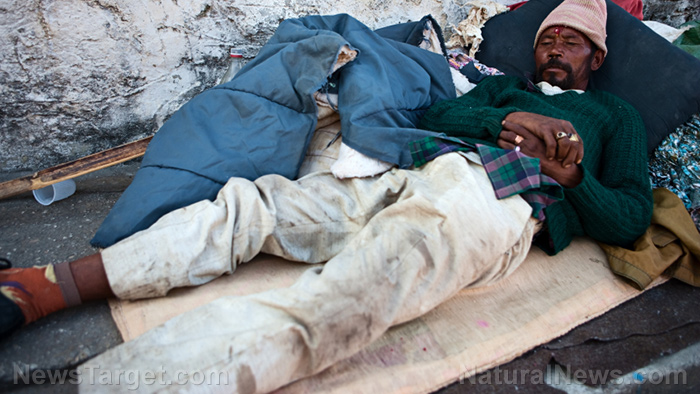Children who have it rough growing up make better decisions when faced with uncertainty, new science shows
05/13/2017 / By Bridgette Wilcox

Having a tough childhood tends to haunt people well into their adult years, but take heart: There is a silver lining. A recent study found that people who had it rough growing up tend to be better decision-makers as adults, particularly in uncertain situations, ScienceDaily.com reported. The study, done at Texas A&M University, found that adversity experienced during the formative years may improve certain cognitive functions, contradicting findings from previous research that a rough childhood is not beneficial in any way.
Published in the Journal of Personality and Social Psychology, the study tested participants from high- and low-income backgrounds, and focused on how adults who were reared in unpredictable or stressful environments performed in two particular executive function tasks: inhibition (which referred to controlling impulses and dominant behavioral responses) and shifting (which referred to switching efficiently from one task to another). The study found that those who had dysfunctional childhoods did not do so well when it came to inhibition, but performed better when it came to shifting. These findings reiterated that while inhibition is not very useful in an unpredictable environment, shifting is.
“We found that adverse childhoods are not universally bad for mental functioning. Rather, growing up in adverse, unpredictable environments leads to better performance on certain cognitive tasks (e.g. shifting),” said Chiraag Mittal, study co-author and Texas A&M University Mays Business School professor. “This adds to the growing evidence suggesting that psychological functioning of adults reared in more unpredictable early life environments may be better conceptualized as adapted rather than impaired.”
The power of the elements: Discover Colloidal Silver Mouthwash with quality, natural ingredients like Sangre de Drago sap, black walnut hulls, menthol crystals and more. Zero artificial sweeteners, colors or alcohol. Learn more at the Health Ranger Store and help support this news site.
Understanding the impacts of a difficult childhood
Many studies have explored just how much early childhood affected people in their adult lives. The general sentiment among researchers is that a difficult childhood — while found to be not entirely disadvantageous — is hard to overcome, and can lead to more problems in later life.
According to the National Child Traumatic Stress Network (NCTSN), a history of complex trauma has a long-term impact on different aspects of people’s lives from relationships, to emotional responses, to cognitive processes and learning abilities. Childhood trauma has also been found to take a toll on physical health.
Abused or neglected children, for instance, may have trouble fostering healthy attachments to a caregiver or parent figure. This may result in difficulties in maintaining romantic relationships and friendships later on in life, and may also lead to having a problem with authority figures like law enforcers or educators. Additionally, those who had traumatic childhoods may be easily triggered by even slightly stressful events. They may have trouble managing emotions, and respond to situations with inappropriate or violent emotional reactions. Childhood adversity also increases the risk for a variety of mental health disorders, including depression, anxiety, bipolar disorder, borderline personality disorder, and PTSD.
Referring to the Adverse Childhood Experiences Study, the NCTSN said that people who were exposed to abuse, violence, and incompetent caregivers were also more vulnerable to risky behavior such as smoking, unsafe sex, and alcohol abuse. At the same time, they are more prone to chronic illnesses such as heart disease, cancer, and even premature death. (Related: Mental health issues could shorten life more dramatically than smoking)
Measuring the economic impact of childhood trauma, the organization placed the indirect costs of child abuse and neglect at $33.1 billion. This amount, which is just part of the estimated total cost ($103.8 billion), referred to the cost of secondary and long-term effects of childhood trauma, including special education, mental health care, the juvenile and adult criminal justice system, and lost productivity.
Sources include:
Tagged Under: childhood trauma, mental health




















